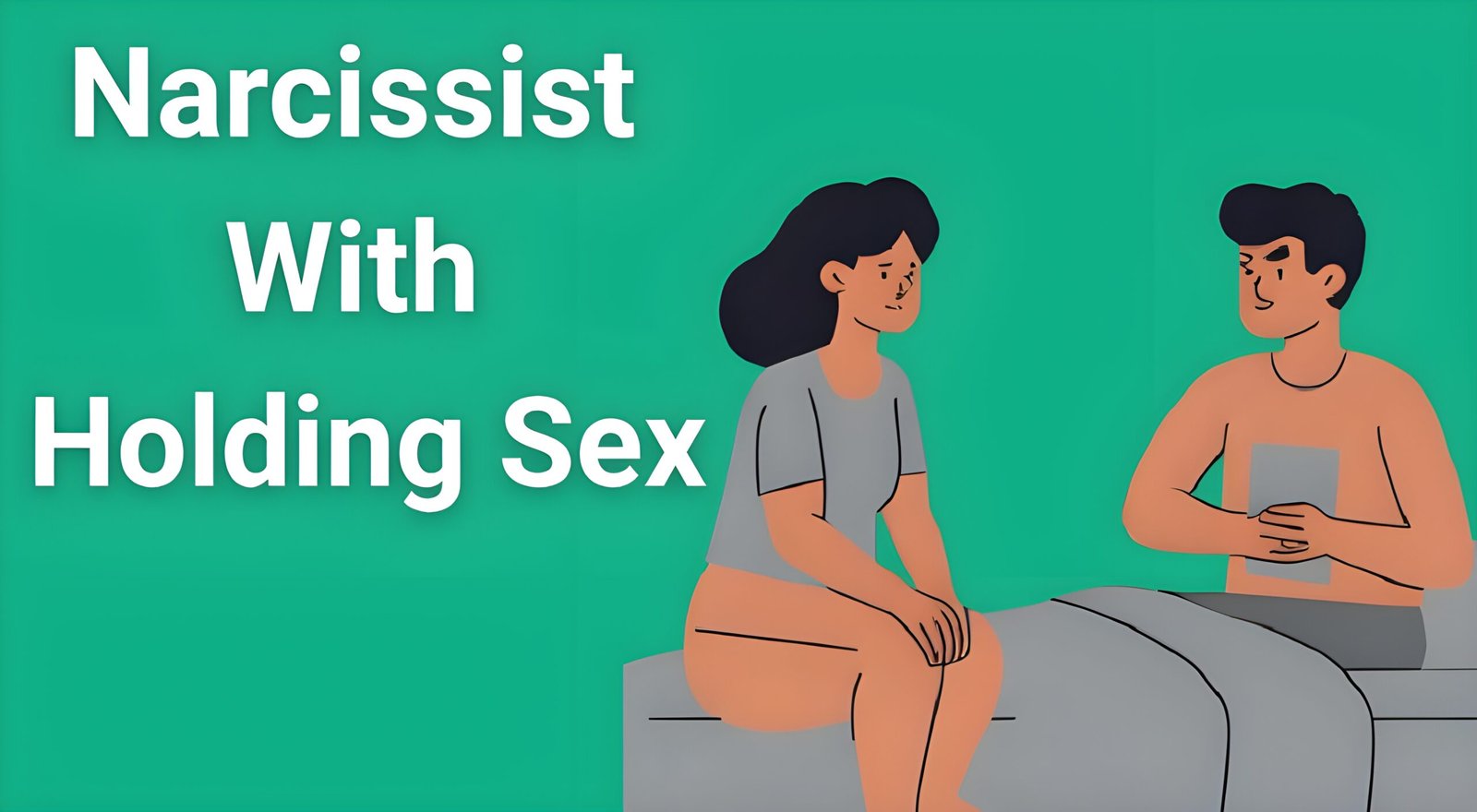When you’re questioning whether your partner’s sexual behavior crosses the line from demanding to abusive, you’re already showing incredible courage. Understanding the connection between narcissism and sexually aggressive behavior isn’t just about putting a label on what you’re experiencing—it’s about validating your reality and taking the first step toward reclaiming your power.
- Understanding Sexual Narcissism and Aggression
- The 8 Warning Signs of Narcissist Sexually Aggressive Behavior
- The Psychology Behind Narcissist Sexually Aggressive Behavior
- The Impact on Survivors
- Breaking Free: Your Path to Recovery
- Protecting Yourself: Red Flags in New Relationships
- The Healing Journey: What Recovery Looks Like
- Frequently Asked Questions
- Conclusion: Your Truth Matters
Research consistently shows that narcissist sexually aggressive patterns often escalate over time, making early recognition crucial for your safety and emotional well-being. Unlike healthy sexual relationships built on mutual respect and consent, sexually aggressive narcissists use intimacy as a weapon of control, manipulation, and dominance.
Understanding Sexual Narcissism and Aggression
Sexual narcissism represents a specific pattern where narcissistic traits—entitlement, lack of empathy, grandiosity, and exploitation—manifest specifically within sexual contexts. When combined with aggressive tendencies, this creates a particularly dangerous dynamic that can devastate survivors.
The connection between narcissism and sexual aggression isn’t coincidental. Studies published in major psychological journals demonstrate that narcissists respond to sexual rejection with increased aggression, often interpreting “no” as a personal attack on their inflated self-image. This narcissistic reactance can trigger escalating sexual coercion, manipulation, and abuse.
What makes narcissist sexually aggressive behavior particularly insidious is how it often begins. Many survivors report that their abuser was initially the most passionate, attentive lover they’d ever had. This isn’t accidental—it’s a calculated strategy designed to create trauma bonds that become increasingly difficult to break.
The 8 Warning Signs of Narcissist Sexually Aggressive Behavior
1. Sexual Entitlement That Ignores Your Consent
A narcissist sexually aggressive partner believes they have an inherent right to sex whenever and however they want it. This entitlement manifests as:
- Expecting sex regardless of your physical or emotional state
- Becoming angry or punitive when you say no
- Using phrases like “You owe me this” or “It’s your duty”
- Treating your body as their property
- Dismissing your need for emotional connection before physical intimacy
This entitlement often starts subtly. They might pout or give you the silent treatment after rejection, gradually escalating to more overt pressure tactics. The underlying message is always the same: your consent is optional, their satisfaction is mandatory.
2. Escalating Sexual Coercion and Pressure
Sexual coercion by narcissist sexually aggressive individuals rarely begins with obvious force. Instead, it follows a predictable escalation pattern:
Stage 1: Persistent persuasion and whining
Stage 2: Guilt, shame, and emotional manipulation
Stage 3: Threats and ultimatums
Stage 4: Physical force or assault
The coercion often includes threatening infidelity (“If you won’t, someone else will”), playing victim (“You don’t love me anymore”), or using your emotions against you (“After everything I’ve done for you”). These tactics are designed to wear down your resistance while making you feel responsible for their behavior.
3. Complete Lack of Sexual Empathy
Healthy sexual relationships involve reading your partner’s cues, checking in about comfort levels, and prioritizing mutual pleasure. Narcissist sexually aggressive individuals operate from a fundamentally different framework:
- They show no interest in your pleasure unless it feeds their ego
- Your physical or emotional discomfort is ignored or dismissed
- They become frustrated when you don’t respond as expected
- Your sexual preferences are criticized or mocked
- They view sex as a performance where they’re the star
This lack of empathy extends beyond the bedroom. They may share intimate details about your sex life with others, use your vulnerabilities against you, or completely disregard your emotional needs during or after intimacy.
4. Sexual Punishment and Withdrawal
When narcissist sexually aggressive partners don’t get what they want, they often weaponize sex itself. This can manifest as:
- Complete sexual withdrawal as punishment for perceived slights
- Withholding affection and intimacy to control your behavior
- Using sex as a bargaining chip for non-sexual compliance
- Alternating between hypersexual periods and complete rejection
- Making you “earn” physical affection through submission
This pattern creates anxiety and desperation, often leading survivors to compromise their boundaries just to restore normalcy to the relationship. It’s a calculated strategy designed to keep you off-balance and craving their approval.
5. Degrading Sexual Acts and Humiliation
As the relationship progresses, many narcissist sexually aggressive individuals push boundaries toward increasingly degrading sexual acts. This isn’t about consensual exploration—it’s about dominance and humiliation:
- Demanding sexual acts that make you uncomfortable
- Pressuring you into situations that feel degrading
- Recording sexual encounters without clear consent
- Sharing intimate photos or videos as threats
- Using sex to reinforce their power over you
The line between “kinky” and abusive isn’t about the acts themselves—it’s about consent, respect, and care for your well-being. Narcissist sexually aggressive partners use sexual degradation as psychological warfare.
6. Sexual Jealousy and Surveillance
Paradoxically, while demanding sexual access to you, narcissist sexually aggressive individuals often become obsessively controlling about your interactions with others:
- Interrogating you about past sexual experiences
- Monitoring your interactions with potential “threats”
- Accusing you of cheating based on paranoid fantasies
- Controlling your clothing and appearance
- Isolating you from friends who might “influence” you
This jealousy isn’t about love—it’s about ownership. They view you as their sexual property and respond to any perceived threat with rage and increased control.
7. Sexual Aggression During Arguments
One of the most dangerous signs of narcissist sexually aggressive behavior is when conflict resolution becomes sexualized. This might include:
- Demanding sex immediately after arguments
- Using sexual dominance to “resolve” disagreements
- Becoming physically aggressive during sexual encounters when angry
- Refusing to discuss problems unless you first “prove your love” sexually
- Making sexual compliance a prerequisite for basic respect
This pattern teaches you that your thoughts, feelings, and boundaries are less important than their sexual satisfaction. It gradually erodes your sense of self-worth and autonomy.
8. Progressive Boundary Erosion
Perhaps the most insidious aspect of narcissist sexually aggressive behavior is how it gradually normalizes the unacceptable. What starts as minor boundary pushing evolves into:
- Increasingly frequent violations of your stated limits
- Gaslighting about what you previously agreed to
- Moving goalposts about what’s “normal” in relationships
- Using your past compliance to justify future demands
- Making you question your own perception of what’s acceptable
This progressive erosion happens so gradually that many survivors don’t recognize the full extent of the abuse until they’re deeply trauma bonded and struggling to leave.
The Psychology Behind Narcissist Sexually Aggressive Behavior
Understanding why narcissist sexually aggressive behavior develops can help you recognize that this abuse isn’t about you—it’s about their fundamental character flaws and emotional dysfunction.
The Narcissistic Supply System
For narcissists, sex serves multiple psychological functions beyond physical pleasure. Sexual domination provides what psychologists call “narcissistic supply”—validation of their superiority, power, and control. Your compliance feeds their grandiose self-image, while your resistance threatens their fragile ego.
Reactance and Revenge
Research consistently shows that narcissists respond to sexual rejection with what’s called “narcissistic reactance.” When you say no, they don’t just experience disappointment—they experience narcissistic injury. This triggers a desire for revenge and an increased motivation to “take” what was “denied” to them.
Power and Control Dynamics
Unlike healthy individuals who view sex as an expression of love and connection, narcissist sexually aggressive individuals primarily see sex as a tool for maintaining dominance. Every sexual encounter reinforces their belief that they have ultimate power over your body and choices.
The Impact on Survivors
Living with narcissist sexually aggressive behavior creates profound psychological and physical consequences that can persist long after the relationship ends.
Trauma Bond Formation
The cycle of sexual abuse followed by affection creates powerful trauma bonds—neurological connections that make leaving feel impossible despite the abuse. Your brain literally becomes addicted to the unpredictable cycle of pain and relief.
Sexual Identity Confusion
Many survivors report feeling completely disconnected from their own sexual desires and boundaries after experiencing narcissist sexually aggressive abuse. Years of having your preferences dismissed and boundaries violated can leave you questioning what you actually want versus what you’ve been conditioned to accept.
Hypervigilance and Triggers
Even after escaping the relationship, survivors often struggle with sexual anxiety, hypervigilance during intimate moments, and unexpected triggers that transport them back to the abuse. This isn’t weakness—it’s a normal response to abnormal treatment.
Self-Blame and Shame
The gradual nature of narcissist sexually aggressive behavior often leaves survivors wondering if they “allowed” the abuse or somehow deserved it. This self-blame is a direct result of the gaslighting and manipulation, not a reflection of reality.
Breaking Free: Your Path to Recovery
Recognizing narcissist sexually aggressive behavior is the first step, but recovery requires intentional action and often professional support.
Immediate Safety Planning
If you’re currently experiencing narcissist sexually aggressive behavior, your safety is the top priority. This might involve:
- Documenting incidents for potential legal action
- Identifying safe people and places
- Developing code words with trusted friends
- Securing important documents and resources
- Understanding that leaving can be the most dangerous time
Professional Support Options
Recovery from narcissist sexually aggressive abuse often requires specialized help. Consider seeking support from professionals who understand the unique dynamics of narcissistic abuse.
One resource that has helped thousands of survivors gain clarity is a comprehensive Narcissistic Abuse Clarity Report. This personalized analysis helps you understand exactly what you’re dealing with, why you feel so confused, and what specific steps to take next. Unlike generic therapy, this specialized assessment is designed specifically for survivors of narcissistic abuse and provides the validation and roadmap many people desperately need.
Breaking Trauma Bonds
If you find yourself unable to stay away despite recognizing the abuse, you’re not weak—you’re trauma bonded. This neurological addiction requires specific strategies beyond willpower alone.
The 30 Day Trauma Bond Recovery Workbook offers a science-based system used by over 2,000 survivors to break free permanently. Unlike traditional relationship advice, this approach addresses the brain chemistry that keeps you trapped, providing daily exercises designed to rewire your neural pathways and reclaim your autonomy.
Surviving While You Can’t Leave Yet
Sometimes leaving immediately isn’t safe or possible due to financial constraints, children, legal complications, or other factors. If you’re in this situation, specialized strategies can help you protect your mental health and plan for eventual freedom.
Resources like “How to Survive When You Can’t Leave Yet” provide crucial guidance for maintaining your sanity and safety while developing an exit strategy. This isn’t about accepting the abuse—it’s about surviving it while you work toward escape.
Protecting Yourself: Red Flags in New Relationships
Once you understand narcissist sexually aggressive patterns, you can better protect yourself in future relationships. Watch for these early warning signs:
- Love bombing followed by subtle pressure for sexual compliance
- Partners who seem more interested in conquest than connection
- Individuals who don’t respect small boundaries
- People who become angry or sulky when you say no to anything
- Partners who rush sexual intimacy or pressure you to “prove” your feelings
Remember: healthy partners want enthusiastic consent, not just compliance. They care about your comfort and pleasure, not just their own satisfaction.
The Healing Journey: What Recovery Looks Like
Recovery from narcissist sexually aggressive abuse isn’t linear, but it is possible. Many survivors report that understanding the dynamics of their abuse was the turning point in their healing journey.
Reclaiming Your Sexual Autonomy
Part of healing involves rediscovering your own sexual preferences, boundaries, and desires. This process takes time and often benefits from specialized therapy that addresses sexual trauma specifically.
Building Healthy Relationships
Learning to recognize and maintain healthy relationship dynamics is crucial for long-term recovery. This includes understanding the difference between healthy passion and manipulative love bombing, setting and enforcing boundaries, and trusting your instincts when something feels wrong.
Post-Traumatic Growth
Many survivors eventually experience what psychologists call post-traumatic growth—becoming stronger, more compassionate, and more resilient than they were before the abuse. This doesn’t minimize what you’ve been through; it acknowledges your incredible strength in surviving and healing.
Frequently Asked Questions
Q: How can I tell if my partner’s sexual behavior is narcissistic aggression or just a high sex drive?
A: The key difference lies in respect for your consent and wellbeing. High sex drive coupled with empathy means accepting no gracefully and prioritizing your comfort. Narcissist sexually aggressive behavior involves pressure, coercion, and disregard for your feelings.
Q: Can narcissist sexually aggressive behavior be treated or cured?
A: While personality disorders like narcissism are deeply ingrained and difficult to change, some individuals can learn to modify their behavior through intensive therapy. However, this requires genuine acknowledgment of the problem and sustained effort—both of which are rare in narcissistic individuals.
Q: Is it normal to still love someone who has been sexually aggressive?
A: Yes, this is extremely common and doesn’t mean you’re weak or foolish. Trauma bonds create powerful emotional connections that can persist despite abuse. Love and safety aren’t mutually exclusive—you can love someone while recognizing they’re dangerous for you.
Q: How do I explain to others why I stayed with someone who was sexually aggressive?
A: You don’t owe anyone an explanation, but if you choose to share, emphasize that abuse is designed to confuse and trap victims. The gradual escalation, trauma bonding, and psychological manipulation make leaving extremely difficult, especially without support.
Q: Can children be affected by a parent’s narcissist sexually aggressive behavior even if they’re not directly abused?
A: Absolutely. Children exposed to domestic abuse, including sexual abuse between parents, often develop anxiety, depression, and unhealthy relationship models. Protecting children from this environment is crucial for their psychological development.
Q: How long does it take to recover from narcissist sexually aggressive abuse?
A: Recovery timelines vary greatly depending on factors like the duration of abuse, available support, access to therapy, and individual resilience. Many survivors report feeling significantly better within the first year of safety, but deeper healing often continues for several years.
Conclusion: Your Truth Matters
If you recognize yourself in these patterns, please know that your instincts are valid. Narcissist sexually aggressive behavior is a serious form of abuse that can have lasting psychological and physical consequences. You deserve to be treated with respect, kindness, and genuine care—especially in your most vulnerable moments.
The path to healing begins with acknowledging what you’ve experienced and seeking appropriate support. Whether that’s through professional therapy, specialized resources for narcissistic abuse survivors, or connecting with others who understand your experience, help is available.
Remember that recognizing narcissist sexually aggressive behavior isn’t about blaming or diagnosing your partner—it’s about understanding the dynamics that have left you feeling confused, hurt, and trapped. With proper support and resources, it’s possible to break free from these patterns and build the healthy, respectful relationships you deserve.
Your story matters. Your healing matters. And most importantly, you matter—not for what you can provide others, but simply for who you are.






